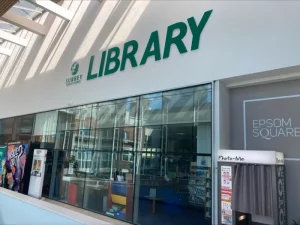Guildford could soon see one of its biggest housing developments in decades, with fresh plans submitted to build up to 1,800 new homes at Gosden Hill.
Developers Martin Grant Homes want to transform farmland off the A3 into a new neighbourhood complete with schools, shops, sports pitches, and even a Park and Ride.
The outline applications sets out a long-term vision for the site, which would include:
- Up to 1,800 homes, including 40 per cent affordable housing
- Six Gypsy and Traveller pitches
- A new local centre with shops, health and community facilities
- Land for both a primary school and secondary school
- Around 10,000sqm of employment floorspace
- A 250-space Park and Ride near the A3
- Large areas of green space, including allotments, play areas, and a new woodland walking rout
Developers say the project would create a “gateway for Guildford” for drivers coming off the A3. The site, covering more than 130 hectares of farmland and woodland, sits between Burpham and the A3. If approved, the first phase 150 homes would be built with access from Merrow Lane.
The bulk of the site will be housing in a mix of family homes, apartments and some specialist accommodation. Planning documents detail the homes will be built in phases including a mixture of sizes from smaller flats to larger family homes, around 720 affordable homes, space for self-build plots and some elderly care housing.
Most of the higher density housing, like apartment blocks, would sit around the centre and the main street of the new community, while the rest of the site would focus on family housing with gardens.
Not everyone will welcome the idea of more traffic but the scheme includes a new A3 junction, cycle paths, and upgraded bus services to ease the pressure on local roads.
About 34 hectares of open space is planned including a big new woodland walking area at Cotts and Frithy’s Wood. Developers say overhead power lines will be buried underground and much of the existing woodland kept to help the site blend in with the landscape.
Guildford Borough Council cannot currently meet government housing supply targets so the developers argue the project should be green-lit to help tackle the housing shortage.
If given the green light, Gosden Hill would become home to thousands of people, with the developer promising it will be a “healthy, happy and sociable” place to live.
Only eight people have objected to the scheme so far with the majority of comments slamming the construction traffic plan as “wholly inadequate” for the road and likely to cause “intolerable disruption”.
Outline of the proposed development on Gosden Hill Farm. (Credit: Guildford Borough Council/ Martin Grant Homes)











